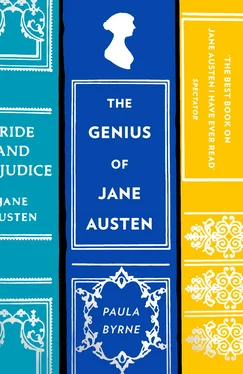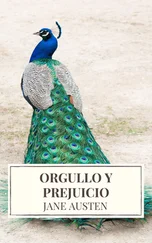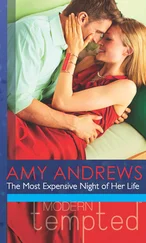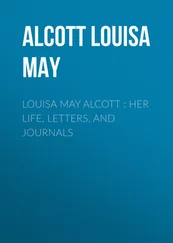1 ...6 7 8 10 11 12 ...24 Austen dedicated ‘The Visit’ to her brother James. Intriguingly, in her dedication, she recalled two other Steventon plays. These ‘celebrated comedies’ were probably written by James, since Jane describes her own ‘drama’ as ‘inferior’ to his:
Sir, The Following Drama, which I humbly recommend to your Protection & Patronage, tho’ inferior to those celebrated comedies called ‘The School for Jealousy’ & ‘The travelled Man’, will I hope afford some amusement to so respectable a Curate as yourself; which was the end in veiw [ sic ] when it was first composed by your Humble Servant the Author. ( MW , p. 49)
James had recently returned from his travels abroad, so ‘the travelled Man’ may have been based on his adventures. The two play-titles echo the form of several favourites in the eighteenth-century dramatic repertoire: Goldsmith’s The Good-Natur’d Man (1768), Arthur Murphy’s The School For Guardians (1769), and Richard Cumberland’s The Choleric Man (1774), Sheridan’s The School for Scandal (1777), and Hannah Cowley’s School for Elegance (1780).
‘The Mystery’ was probably performed as an afterpiece to the Steventon 1788 ‘Private Theatrical Exhibition’. 60Austen dedicated it to her father, and it may well have been a mocking tribute to one of his favourite plays. It has been suggested that the whispering scenes in this playlet were based on a similar scene in Sheridan’s The Critic . 61Jane Austen’s parody is, however, closer to Buckingham’s burlesque, The Rehearsal , which Sheridan was self-consciously reworking in The Critic . 62It is most likely that Austen was parodying the whispering scene in The Rehearsal , where Bayes insists that his play is entirely new: ‘Now, Sir, because I’ll do nothing here that ever was done before, instead of beginning with a Scene that discovers something of the Plot I begin this play with a whisper’:
PHYSICIAN: But yet some rumours great are stirring; and if Lorenzo should prove false (which none but the great Gods can tell) you then perhaps would find that – [ Whispers. ]
BAYES: Now he whispers.
USHER: Alone, do you say?
PHYSICIAN: No; attended with the noble – [ Whispers. ]
BAYES: Again.
USHER: Who, he in gray?
PHYSICIAN: Yes; and at the head of – [ Whispers. ]
BAYES: Pray, mark.
USHER: Then, Sir, most certain, ’twill in time appear. These are the reasons that have mov’d him to’t; First, he – [ Whispers. ]
BAYES: Now the other whispers.
USHER: Secondly, they – [ Whispers. ]
BAYES: At it still.
USHER: Thirdly, and lastly, both he, and they – [ Whispers. ]
BAYES: Now they both whisper. [ Exeunt Whispering. ] 63
‘The Mystery’ is closely modelled on this whispering scene. Austen’s playlet is comprised of a series of interruptions and non-communications. It opens with a mock mysterious line, ‘But hush! I am interrupted!’, and continues in a similarly absurd and nonsensical manner:
DAPHNE: My dear Mrs Humbug how dy’e do? Oh! Fanny, t’is all over.
FANNY: Is it indeed!
MRS HUMBUG: I’m very sorry to hear it.
FANNY: Then t’was to no purpose that I …
DAPHNE: None upon Earth.
MRS HUMBUG: And what is to become of? …
DAPHNE: Oh! thats all settled. [ whispers Mrs Humbug ]
FANNY: And how is it determined?
DAPHNE: I’ll tell you. [ whispers Fanny ]
MRS HUMBUG: And is he to? …
DAPHNE: I’ll tell you all I know of the matter. [ whispers Mrs Humbug and Fanny ]
FANNY: Well! now I know everything about it, I’ll go away.
MRS HUMBUG & DAPHNE: And so will I. [ Exeunt ]
( MW , p. 56)
The play ends with a further whispering scene, where the secret is finally whispered in the ear of the sleeping Sir Edward: ‘Shall I tell him the secret? … No, he’ll certainly blab it … But he is asleep and won’t hear me … So I’ll e’en venture’ ( MW , p. 57). In ‘The Mystery’, we are never told any information about the conversations between the characters, and it becomes as incongruous as Bayes’s own ‘new’ play, which he proudly insists has no plot.
Austen’s third playlet, ‘The First Act of a Comedy’, parodies musical comedy, an extremely popular mode of dramatic entertainment in the latter part of the eighteenth century. 64A satirical passage from George Colman’s New Brooms (1776) targets the vogue for comic opera:
Operas are the only real entertainment. The plain unornamented drama is too flat, Sir. Common dialogue is a dry imitation of nature, as insipid as real conversation; but in an opera the dialogue is refreshed by an air every instant. – Two gentlemen meet in the Park, for example, admire the place and the weather; and after a speech or two the orchestra take their cue, the musick strikes up, one of the characters takes a genteel turn or two on the stage, during the symphony, and then breaks out –
When the breezes
Fan the trees-es,
Fragrant gales
The breath inhales,
Warm the heart that sorrow freezes. 65
Austen, like Colman, satirises the artificiality of the comic opera, its spontaneous outbursts of songs, and distinctive lack of plot. 66Austen’s playlet concerns the adventures of a family en route to London, and is set in a roadside inn, a familiar trope of the picaresque form popularised in Fielding’s novels Joseph Andrews and Tom Jones . 67Austen’s play also nods towards Shakespeare’s comic scenes set in ‘The Boar’s Head’ in Henry IV, Parts One and Two . Three of the female characters are called ‘Pistoletta’, ‘Maria’ and ‘Hostess’.
Chloe, who is to be married to the same man as Pistoletta, enters with a ‘chorus of ploughboys’, reads over a bill of fare and discovers that the only food available is ‘2 ducks, a leg of beef, a stinking partridge, & a tart’. Chloe’s propensity for bursting into song at any given moment echoes Colman’s burlesque of the inanities of comic opera: ‘And now I will sing another song.’
SONG
I am going to have my dinner,
After which I shan’t be thinner,
I wish I had here Strephon
For he would carve the partridge
If it should be a tough one.
CHORUS
Tough one, tough one, tough one,
For he would carve the partridge if it should be a tough one.
( MW , p. 174) 68
As will be seen in the next two chapters, Austen clearly enjoyed musical comedy, even if, like Colman, she was conscious of its deficiencies as an ‘imitation of nature’.
The three playlets in the juvenilia are parodic and satirical, and a strong sense prevails that Austen was writing to amuse her sophisticated, theatre-loving brothers. Whether she was composing a mocking counterpart to Berquin’s instructive dramatic dialogues, or writing burlesques in the style of plays like The Rehearsal and The Critic , she endeavoured to impress her siblings with her knowledge of the drama. Two of her playlets, ‘The Mystery’ and ‘The First Act of a Comedy’, allude specifically to what was popular on the London stage, and mock it by drawing attention to its limitations and artificiality. ‘The Visit’ nods to the popular comedy High Life Below Stairs , so often dramatised for the private theatre, and begins to explore the incongruities and absurdities of genteel social behaviour.
In contrast with Berquin and William Hayley, who self-consciously used their plays to instruct, Austen entertains. Furthermore, even as she abandoned plays and turned to fiction, she began an apprenticeship in the art of dramatic dialogue and quasi-theatrical techniques that was to distinguish her mature writing. Austen’s juvenilia reveals a deep familiarity with the most popular plays of the period: the works of Garrick, Fielding, Sheridan and Cowley. 69
Читать дальше












